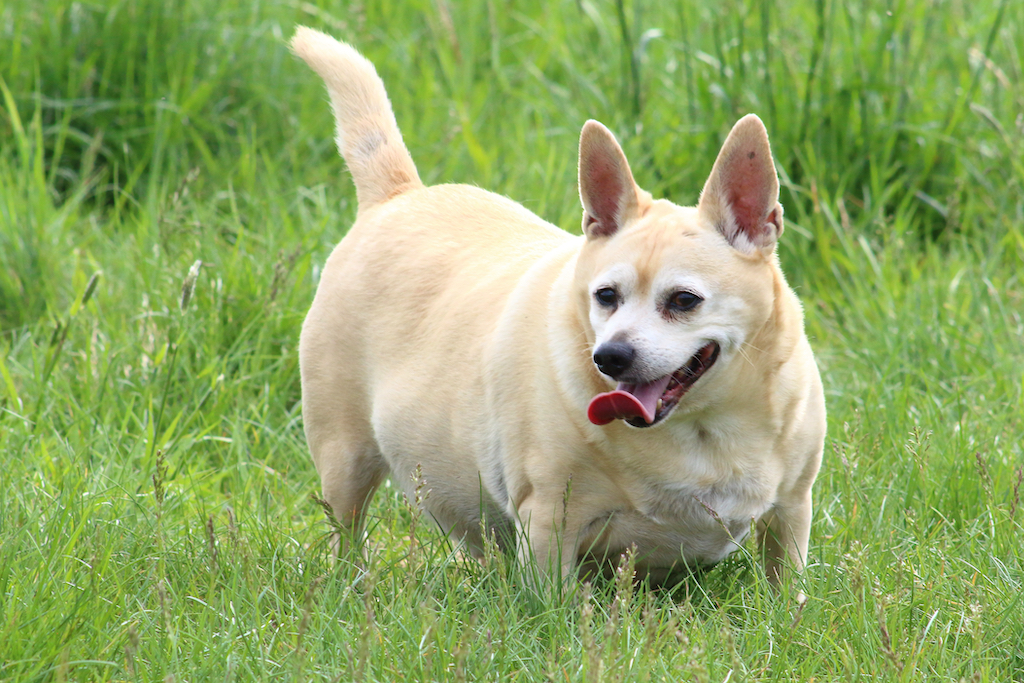
The thyroid gland helps to regulate the body’s metabolism by producing hormones. Hypothyroidism is an underactive thyroid gland. In dogs, hypothyroidism is commonly diagnosed between the ages of four to ten years. Hypothyroidism occurs more commonly in large breed dogs.
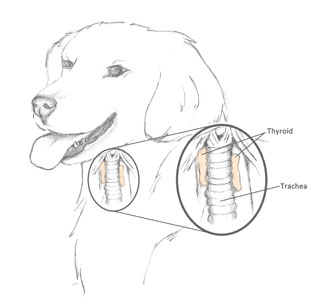 Causes
Causes
The thyroid gland is a paired lobed gland located in the throat area on either side of the trachea. Hypothyroidism in dogs is thought to be an immune-mediated disease called lymphocytic thyroiditis. The immune system attacks the cells in the thyroid gland causing inflammation and atrophy of the gland. Over time the thyroid gland’s activity decreases with a subsequent decreased production in the thyroxine hormone. It is unclear why this condition occurs; however, it is a heritable trait meaning that genetics likely plays a role in this condition.
Symptoms
- Loss or thinning of hair
- Dull and dry hair coat
- Thickening of the skin and increased skin pigment
- Lack of energy
- Weight gain
- Reduced ability to tolerate the cold
- Neurologic changes including dragging of feet and a head tilt
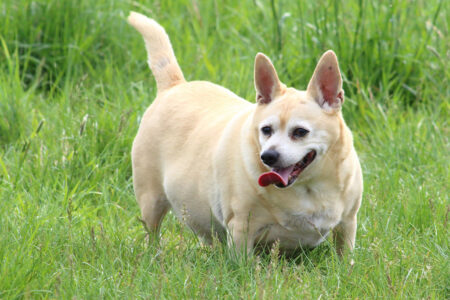 Diagnosis
Diagnosis
There are several types of blood tests used to diagnose and monitor hypothyroidism including Total T4, free T4, and TSH. Thyroxine (T4) is the primary hormone produced by the thyroid gland. T4 circulates in the blood in two forms; one form of the hormone is bound, or attached to proteins in the blood, while the other form circulates freely within the blood stream. TSH (Thyroid Stimulating Hormone) is produced by the pituitary gland to regulate the thyroid gland’s activity.
- Total T4 (thyroxine) – Total T4 level can be measured by a blood test to evaluate both forms of the thyroxine hormone. If the total T4 concentration is below the normal range, and the dog has supportive clinical signs, then hypothyroidism is likely. Total T4 is commonly included on senior screening blood work to help identify subclinical patients.
- Free T4 (free thyroxine) – This test measures the amount of the free thyroxine hormone in a blood sample. Unfortunately, there are conditions other than hypothyroidism that may cause the total T4 value to be reduced. These conditions include the presence of another illness or the administration of some drugs. Free T4 is less affected by the presence of other illnesses or drugs. If free T4 is below normal range then hypothyroidism is confirmed.
- TSH (Thyroid Stimulating Hormone) – TSH levels can be measured by a blood test. In hypothyroid dogs, the concentration of TSH may increase as the pituitary gland tries to stimulate an underactive thyroid gland to increase hormone production. If the total T4 and free T4 levels have not provided a clear diagnosis, an elevated TSH can help confirm the presence of hypothyroidism.
Treatment
Hypothyroidism is treatable but not curable. The recommended treatment is administration of an oral synthetic thyroid hormone replacement called levothyroxine. Thyro-Tabs, an FDA approved formulation of levothyroxine comes in a pill is available. Cost effective generic medications are also available. The medication is normally given once or twice a day. The dose and frequency administered will be determined by your veterinarian. Levothyroxine is generally well tolerated with minimal side effects. Treatment of hypothyroidism is life long, meaning this drug must be given for the rest of the dog’s life.
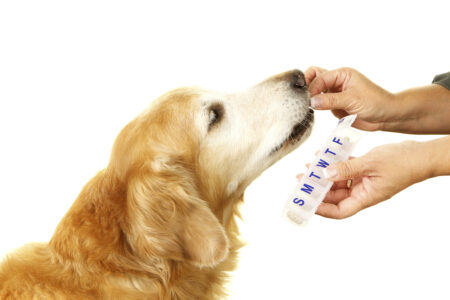 Follow-up
Follow-up
Canine patients with hypothyroidism will need regular progress exams and diagnostic tests performed by a veterinarian. Once the dog is tested and put on medication, they will have to be rechecked one month later to verify the levothyroxine dose is effective. Your pet will have to be on thyroid medication for the rest of its life. Routine thyroid testing should be done on a yearly basis or if symptoms change.
Prognosis
With treatment, the prognosis for hypothyroid dogs is good. Hypothyroidism cannot be cured, but most symptoms will improve with consistent administration of medication. Pets that consistently receive their medication and are monitored regularly by their veterinary have a normal life expectancy. Treatment and control of the hypothyroid pet generally provides very rewarding results for both the patient and the owner.


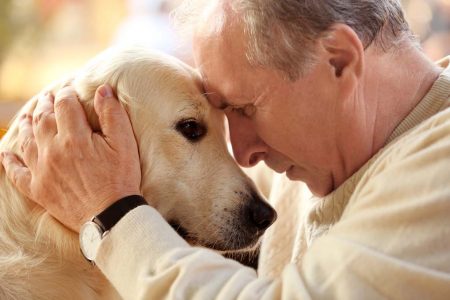



Recent Comments